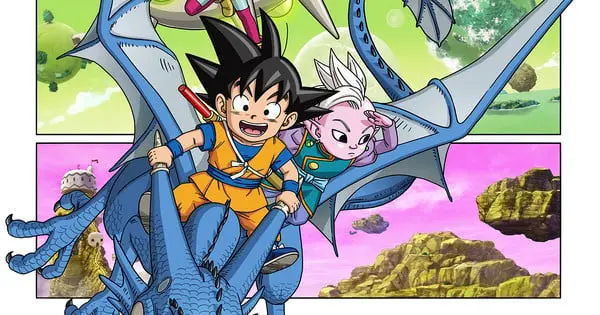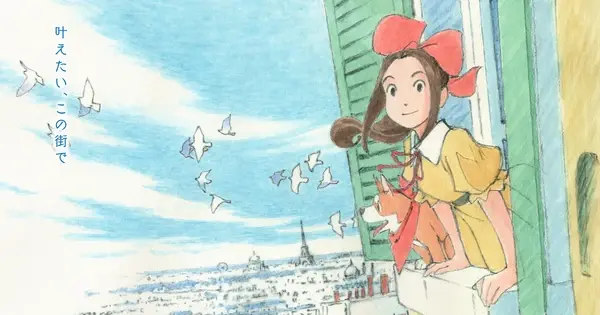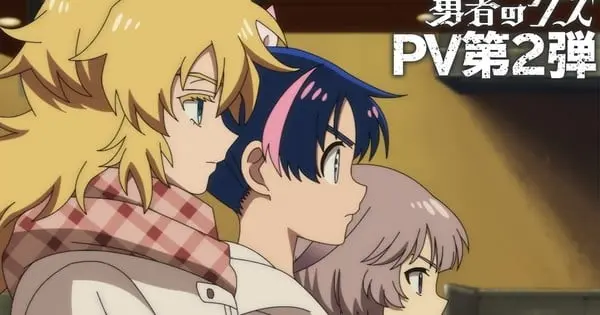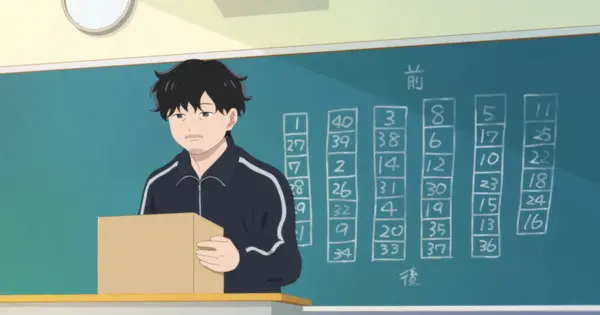Gorō Taniguchi, the acclaimed director behind the iconic anime series Code Geass and the highly successful One Piece Film Red, is set to direct an original anime film titled Paris ni Saku Étoile. The movie, also known as L’étoile de Paris en fleur or Étoile Blossoming in Paris, is slated for a March 13, 2026, release in Japan.
The announcement highlights Taniguchi’s return to an original narrative, promising a compelling story animated by Arvo Animation.
A Parisian Dream: Story and Setting
Paris ni Saku Étoile centers on the journey of two Japanese girls, Fujiko and Chizuru, as they pursue their artistic aspirations in early 20th-century Paris. Fujiko dreams of becoming a painter, while Chizuru is drawn into the world of ballet. Their paths initially cross by chance in Yokohama before fate guides them to reunite in the vibrant artistic capital of Paris, where they dedicate themselves to realizing their ambitions. The film’s tagline, “I want to blossom, in this city,” encapsulates the hopeful and determined spirit of its protagonists.
Stellar Creative Team Assembles for Étoile
Taniguchi has assembled a notable team of industry veterans for Paris ni Saku Étoile:
- Original Character Designs: Katsuya Kondō, known for his prolific work on Studio Ghibli films such such as Kiki’s Delivery Service and Ponyo, is collaborating with Taniguchi for the first time on the original character designs.
- Scriptwriter: Reiko Yoshida, celebrated for her contributions to emotionally resonant works like Violet Evergarden and Maria Watches Over Us, penned the screenplay.
- Adapted Character Design: Yū Yamashita, recognized for Bunny Drop and Love Me, Love Me Not, is adapting Kondō’s designs for animation.
- Music Composer: Takayuki Hattori, who has composed for projects including Mobile Suit Gundam: The Origin and Martian Successor Nadesico, is handling the musical score.
- Voice Cast: Ami Tōma, known for her role in Lonely Castle in the Mirror, stars as Fujiko.
- Other Key Staff: The production also includes Seiichi Shirato as researcher, Yūji Kaneko as art director, Akiko Shibata as color key artist, Tsunetaka Ema as compositing director of photography, Yuriko Chiba for character direction, Hisayasu Kamiya as 3D CG director, Kiyoshi Hirose as editor, Tomomi Ozaki for prop design, Fumihiro Katagai for mechanical design, and Kazuhiro Wakabayashi as sound director. Shochiku will handle the film’s distribution.
Goro Taniguchi’s Prolific Career
Gorō Taniguchi, born on October 18, 1966, in Nisshin, Aichi, Japan, is a highly regarded anime director, writer, producer, and storyboard artist, particularly noted within Sunrise. His extensive filmography showcases a versatile directorial style across various genres.
A Legacy of Acclaimed Works
Taniguchi is perhaps best known globally for creating and directing Code Geass: Lelouch of the Rebellion, a critically acclaimed mecha anime series that premiered in 2006. The series garnered a massive following for its complex narrative, strategic battles, and compelling characters. He continued his involvement with the franchise, directing films such as Code Geass Lelouch of the Re;surrection (2019) and contributing to the original story concept for the recent Code Geass: Rozé of the Recapture (2024).
Beyond Code Geass, Taniguchi has left a significant mark on the anime industry with other notable projects:
- One Piece Film: Red (2022): He directed this highly successful theatrical installment of the One Piece franchise, showcasing his ability to helm major blockbuster anime films.
- Planetes (2003): This critically lauded science fiction anime explored themes of space debris and humanity’s future in space.
- s-CRY-ed (2001): An action-sci-fi series known for its unique power system and character dynamics.
- Bloody Escape (2024): A recent film where he served as original concept creator, director, and screenwriter.
Taniguchi’s involvement in Paris ni Saku Étoile signals another significant addition to his diverse body of work, moving from large-scale action franchises to a more intimate, character-driven narrative. The film was reportedly produced as an independent project during the COVID-19 pandemic and has been in development since at least 2018.










